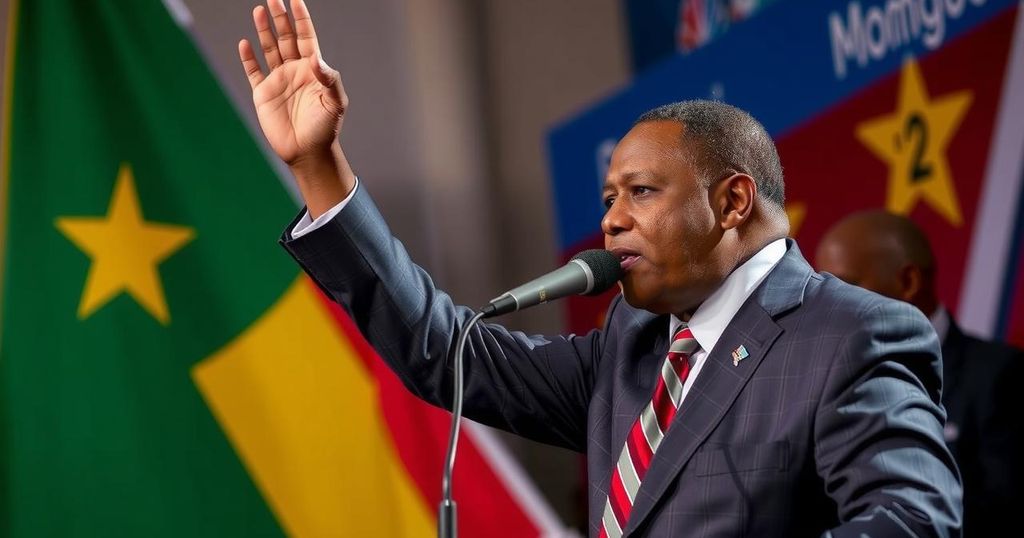Mozambique’s Ruling Party Declares Election Victory Amid Violence and Fraud Allegations
Daniel Chapo of the Frelimo party won Mozambique’s presidential election with 70.7% of the vote amid allegations of fraud and violent incidents that resulted in the deaths of opposition figures. Venâncio Mondlane, who received 20.3% of the vote, claimed victory and urged for peaceful protests, drawing support from the young electorate. Human Rights Watch raised concerns regarding potential violence against demonstrators by security forces.
The election results in Mozambique have indicated a decisive victory for the ruling party, Frelimo, amidst a backdrop of violence and controversy. Daniel Chapo, the Frelimo candidate, secured 70.7% of the votes as reported by the electoral commission, surpassing the requisite 50% for an outright win and thus avoiding a runoff. Venâncio Mondlane, an independent candidate and former radio DJ who appealed to the youth electorate, garnered 20.3%, despite claiming he had won the election. Tragically, the electoral process was shadowed by the murders of Elvino Dias, an opposition lawyer preparing a legal challenge to the results, and Paulo Guambe, a member of the Podemos party, which supported Mondlane. Prior to the election held on October 9, various civil society organizations alleged that the ruling party had registered approximately 900,000 ineligible voters out of an electorate totaling 17 million. Numerous local and international observers reported irregularities, with the Catholic bishops of Mozambique alleging ballot stuffing and European Union observers noting discrepancies in the tallying process. Mozambique, recognized as one of the world’s economically disadvantaged nations, is also recovering from the aftermath of a $2 billion corruption scandal that emerged in 2016, leading to a withdrawal of financial support from the International Monetary Fund (IMF) and other funders. Mondlane’s platform significantly resonated with Mozambique’s youthful demographic, where the average age is below 18, prompting him to encourage peaceful demonstrations via social media. Zenaida Machado, a Human Rights Watch researcher, underscored the necessity for government authorities to uphold the right to peaceful protest and to investigate incidents of violence and arbitrary detentions involving demonstrators and journalists. She expressed concern regarding potential excessive force by security personnel, given their track record in recent years.
The political landscape in Mozambique has been dominated by Frelimo, the ruling party, for almost half a century. Recent elections have been marred by serious allegations of corruption and misconduct, including claims of voter fraud and government-sponsored violence against opposing political figures. The stability of the nation has been further jeopardized by a history of questionable financial practices, particularly the discovery of hidden loans that severely impacted the economy. Young voters have begun to rally behind alternative candidates, indicating a potential shift in the political dynamics of the country.
In summary, the electoral victory of the ruling party in Mozambique, despite significant allegations of electoral fraud and the tragic murders of opposition figures, highlights the complex political challenges facing the country. The calls for peaceful protests and the emphasis on the necessity of government accountability reflect an increasingly vocal and engaged electorate, particularly among the youth.
Original Source: www.theguardian.com




Post Comment